Abstract
A method of observing and modifying teacher attention to appropriate child responses in preschool classrooms was developed. Two teachers with no formal training in reinforcement principles were observed for a baseline of eight days. Teacher A, who displayed a lower baseline rate of attending to appropriate child responses, was trained first. Teacher B was simply observed during the first part of the training condition for Teacher A. During training, A received feedback which included definitions of appropriate child responses, her frequency of attending to appropriate child responses, her total percentage of attending to appropriate child responses, and her frequency of failing to attend to appropriate child responses. Teacher B was then trained in a similar way. Both teachers showed an increase in attending to appropriate child responses subsequent to the onset of experimental feedback.
Full text
PDF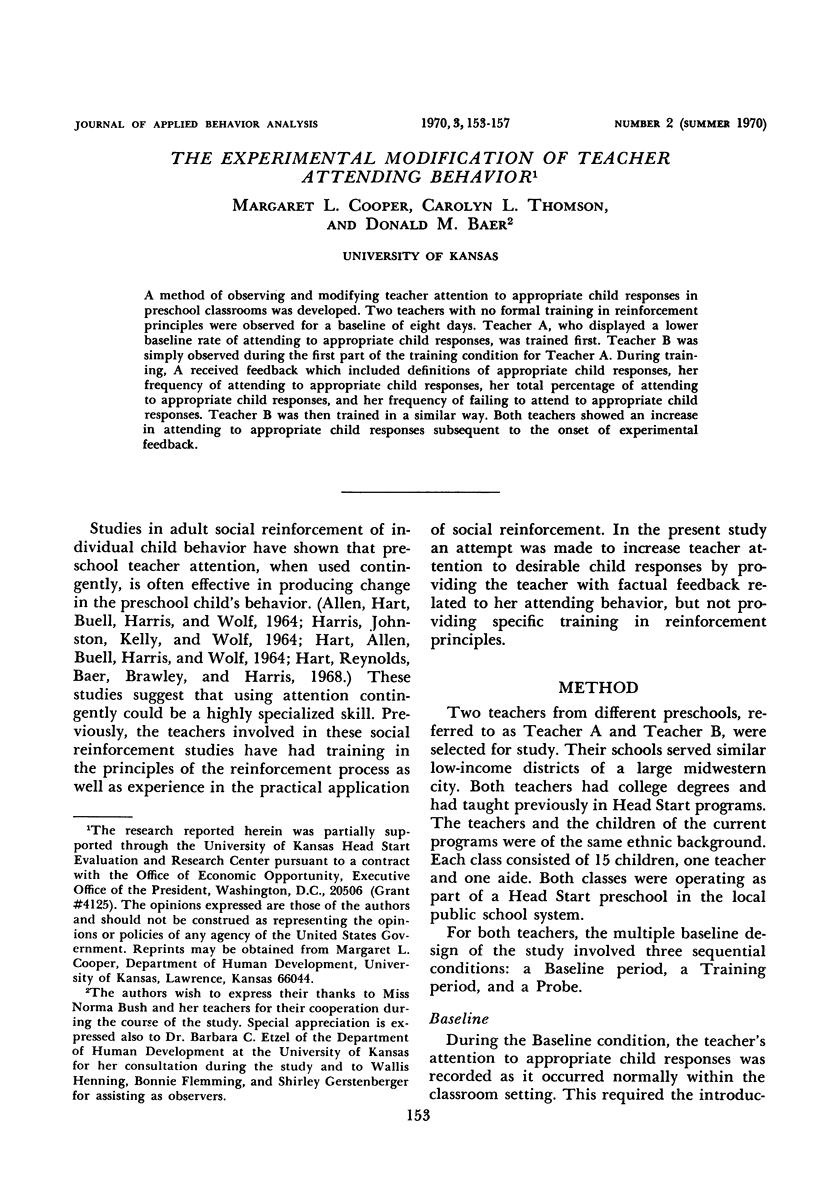
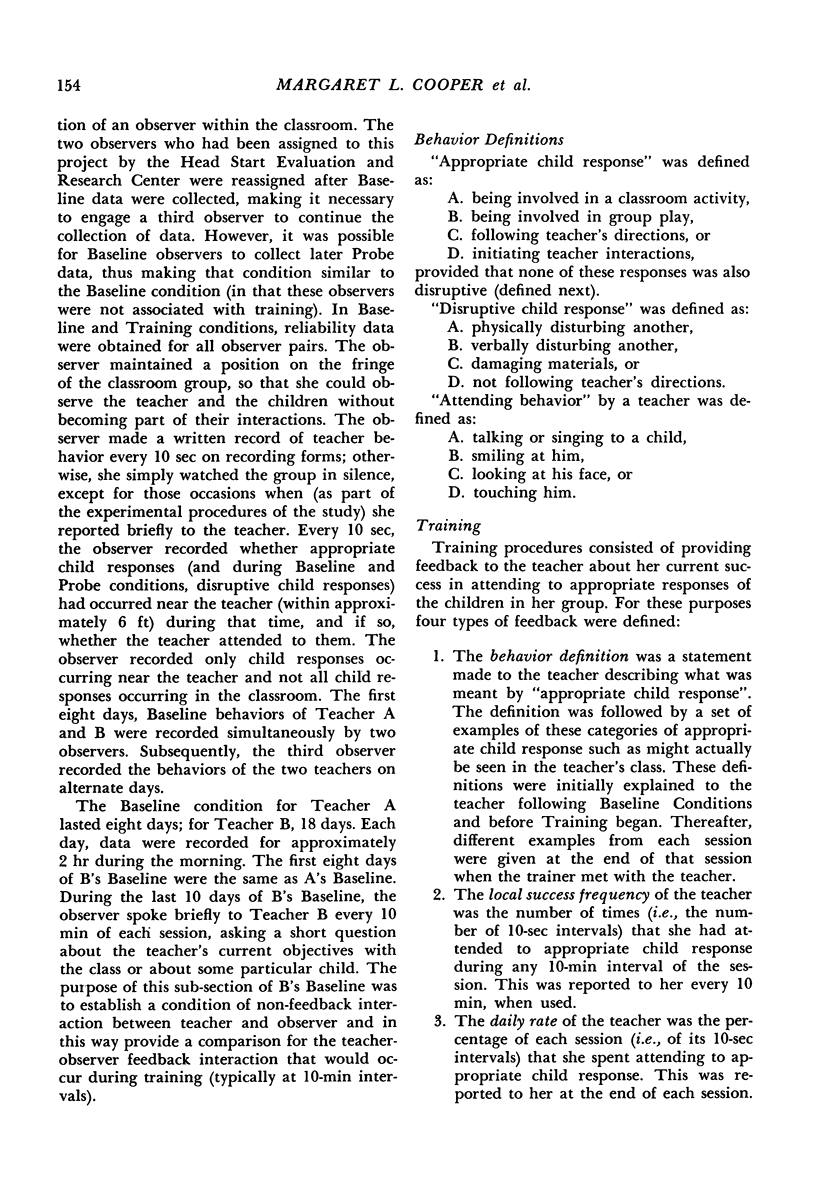
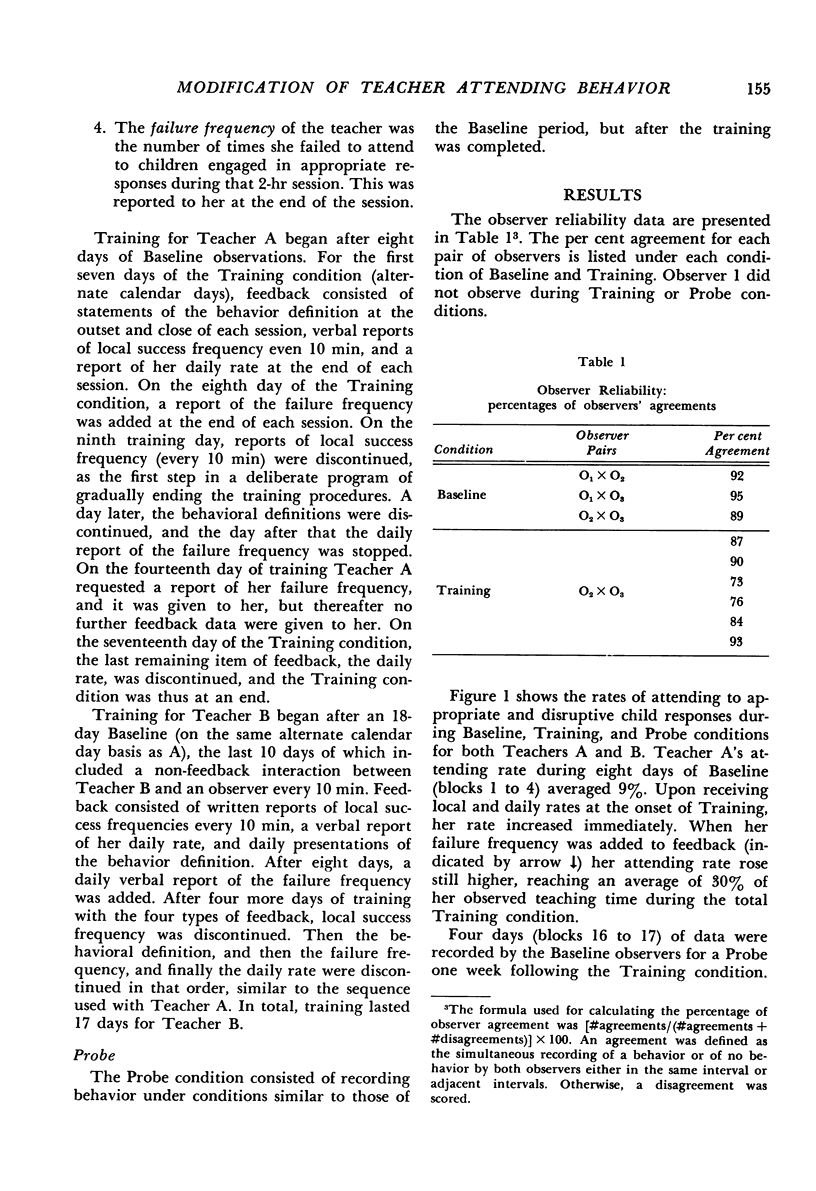
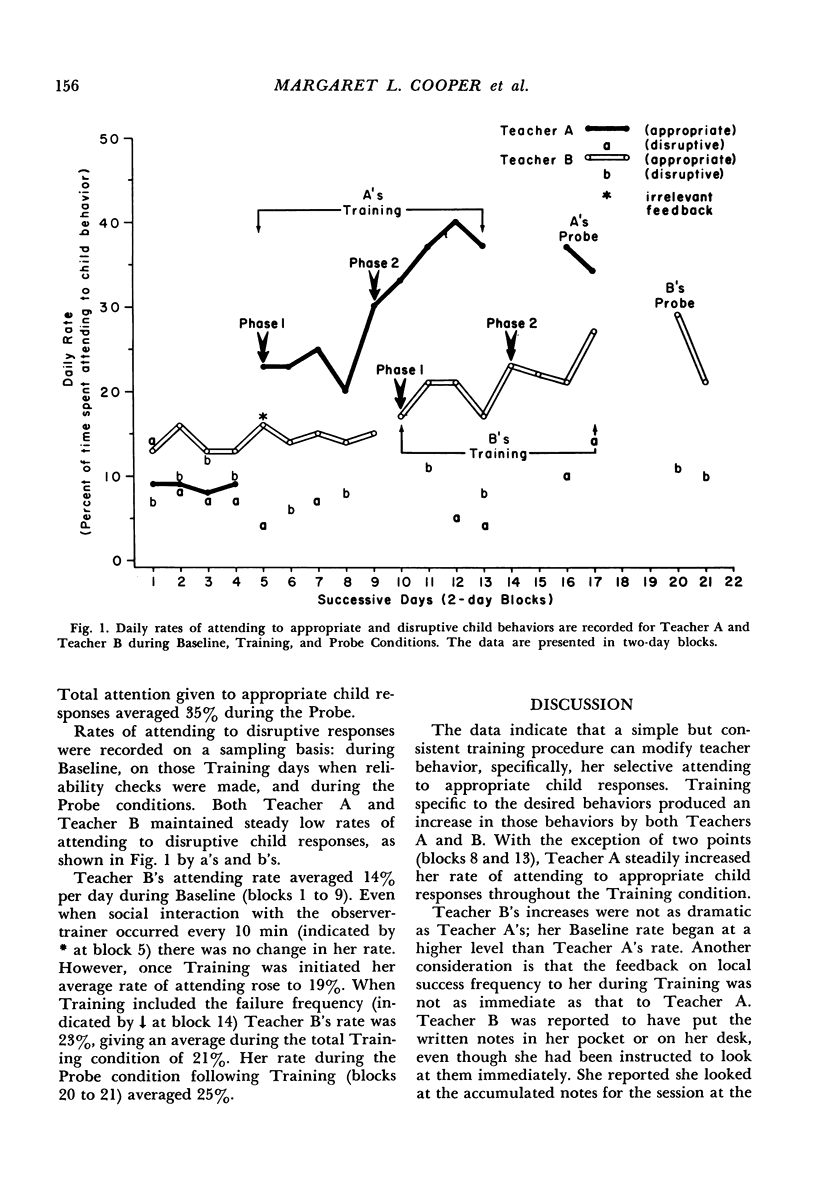
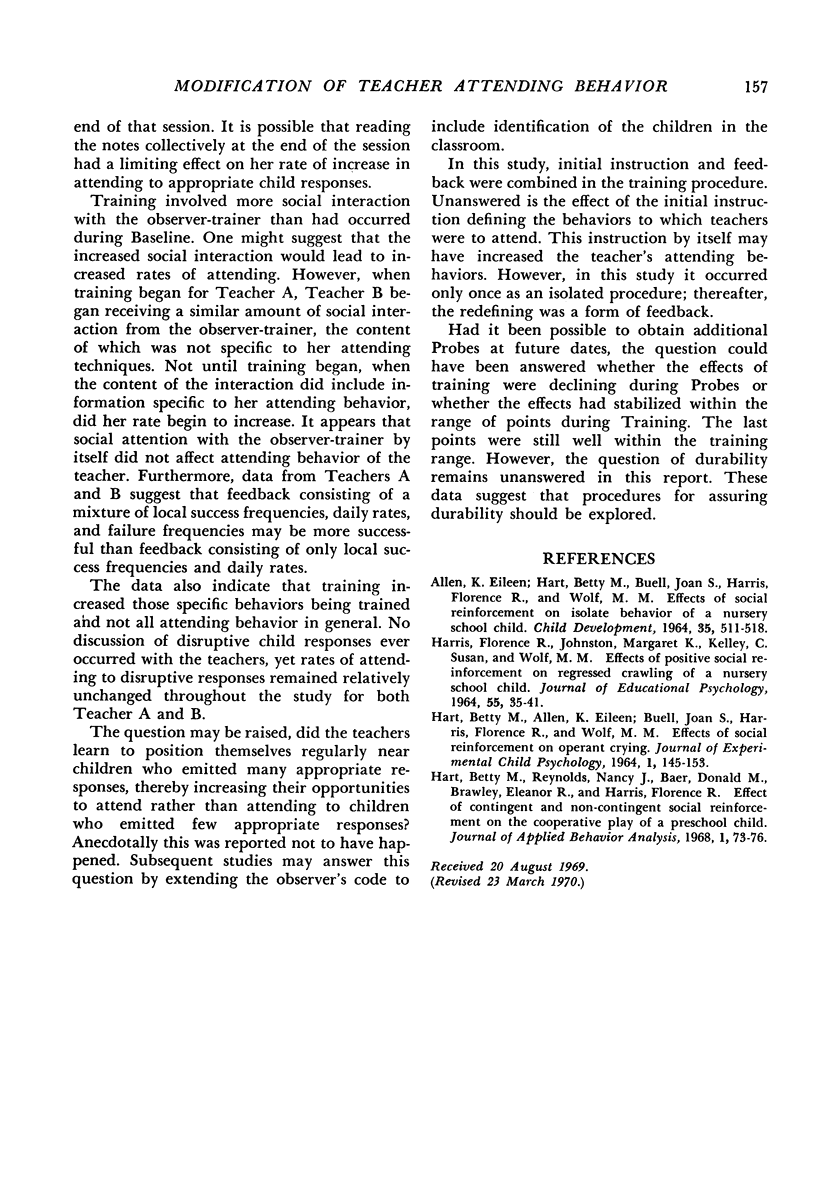
Selected References
These references are in PubMed. This may not be the complete list of references from this article.
- ALLEN K. E., HART B., BUELL J. S., HARRIS F. R., WOLF M. M. EFFECTS OF SOCIAL REINFORCEMENT ON ISOLATE BEHAVIOR OF A NURSERY SCHOOL CHILD. Child Dev. 1964 Jun;35:511–518. doi: 10.1111/j.1467-8624.1964.tb05188.x. [DOI] [PubMed] [Google Scholar]
- Hart B. M., Reynolds N. J., Baer D. M., Brawley E. R., Harris F. R. Effect of contingent and non-contingent social reinforcement on the cooperative play of a preschool child. J Appl Behav Anal. 1968 Spring;1(1):73–76. doi: 10.1901/jaba.1968.1-73. [DOI] [PMC free article] [PubMed] [Google Scholar]


